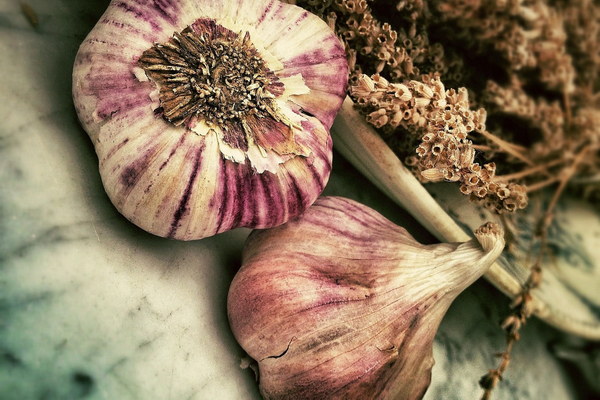Balancing Yin Deficiency and Liver Support Exploring Traditional Chinese Herbs for Hepatic Well-being
In the realm of Traditional Chinese Medicine (TCM), the concept of Yin and Yang plays a vital role in understanding the balance of the body's internal environment. One common condition that affects both the kidney and liver is Kidney Yin Deficiency, which can lead to various health issues, including liver problems. This article delves into the world of TCM and explores the herbs that can help in balancing Kidney Yin Deficiency while providing liver support.
Kidney Yin Deficiency is a TCM diagnosis that refers to a condition where the kidney's Yin energy is depleted, leading to symptoms such as night sweats, hot flashes, dry skin, and irritability. Since the kidney and liver are closely connected in TCM, a deficiency in one can easily affect the other, resulting in liver-related issues such as fatigue, irritability, and poor digestion.
To address these issues, TCM practitioners often recommend a combination of herbs that can nourish the kidney Yin and support liver function. Here are some of the most commonly used herbs in this context:
1. Schisandra (Schisandra chinensis): Also known as Wu Wei Zi, this herb is highly valued for its ability to nourish both kidney and liver Yin. It's often used to relieve fatigue, improve sleep, and enhance overall vitality.
2. Rehmannia (Rehmannia glutinosa): Known as Shan Yao in Chinese, this herb is a staple in TCM for nourishing kidney Yin. It's also used to support liver function and alleviate symptoms like dizziness and dryness.
3. Dioscorea (Dioscorea opposita): Known as Shan Zhu Yu, this herb helps to nourish the kidney Yin and strengthen the bones. It's also beneficial for liver issues, particularly those related to fatigue and irritability.
4. Safflower (Carthamus tinctorius): Known as Hong Hua in Chinese, this herb is used to promote blood circulation and support liver function. It's often included in formulas to relieve pain and inflammation associated with liver issues.
5. Scute (Scutellaria baicalensis): Also known as Huang Qin, this herb is a powerful anti-inflammatory and detoxifying agent. It's used to support liver function and help clear heat from the body, which can alleviate symptoms of kidney Yin Deficiency.
In addition to these herbs, TCM practitioners often combine them with other natural ingredients to create personalized formulas tailored to the individual's specific needs. For example, a formula may include:

- Peony (Paeonia lactiflora): Known as Bai Shao, this herb is used to relieve pain and support liver function.
- Chinese Peony (Paeonia suffruticosa): Known as Chi Shao, this herb helps to nourish blood and support liver function.
- Bupleurum (Bupleurum chinense): Known as Chai Hu, this herb is used to relieve stress and support liver function.
When using these herbs, it's essential to consult with a qualified TCM practitioner, as they can provide guidance on the appropriate dosage and combination of herbs for your specific condition. While many of these herbs are available in supplement form, it's important to note that the effectiveness of these supplements can vary, and some may contain additives or fillers that could be harmful.
In conclusion, balancing Kidney Yin Deficiency and supporting liver health is a vital aspect of TCM. By incorporating the right combination of herbs, individuals can experience relief from symptoms and improve their overall well-being. While TCM offers a holistic approach to healing, it's important to remember that these herbs are not a substitute for conventional medical treatments, especially in cases of severe liver disease or other serious health conditions. Always consult with a healthcare professional before starting any new treatment regimen.









